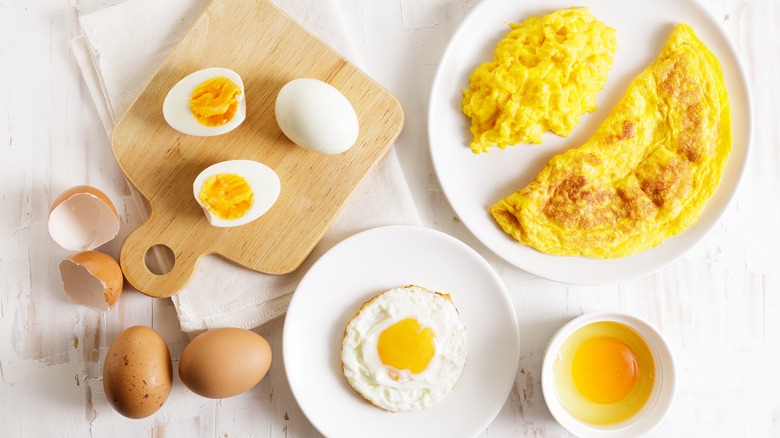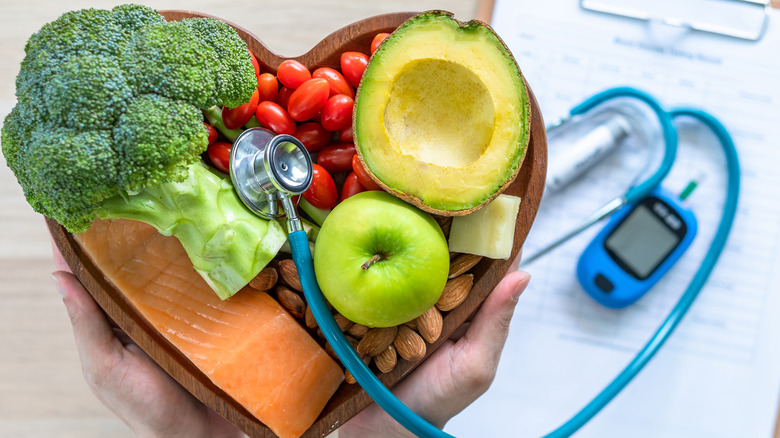Does Eating High-Cholesterol Foods Raise Your Cholesterol?
Cholesterol is important in maintaining the structure of cellular membranes and helps the body make vitamin D and vital hormones, according to Healthline. Your body produces cholesterol, but if you consume a lot of cholesterol in your diet, it produces less. On the other hand, if you don't consume any high-cholesterol food, your body produces enough of it to function.
Low-density lipoproteins (LDL) can create plaque build-up in your arteries and increase your heart disease risk. But not all cholesterol is "bad." High-density lipoprotein (HDL), for example, takes any excess cholesterol in your blood and sends it to your liver. From there, the liver uses the cholesterol or sends it out of the body. Your HDL can protect your arteries from excess plaque build-up.
If you love eggs but fear they might lead to high cholesterol, many of you don't have to worry. A 2013 study in Metabolism had one group of people eat three eggs a day and another group eat the egg-white equivalent. After 12 weeks, both groups saw reductions in their triglycerides and LDL and increases in HDL levels. Those who ate full eggs had greater increases in HDL and more pronounced decreases in LDL. Keep in mind, your cholesterol levels are more impacted by how much fat and carbohydrates are in your diet than how much cholesterol is in your food, according to the Harvard School of Public Health. However, you don't want to go overboard with high-cholesterol food, especially if you have diabetes.
Reducing your cholesterol
The problem with high cholesterol is how it can contribute to your risk of heart disease, as per Healthline. However, smoking, high blood pressure, oxidative stress, and inflammation also factor into your risk of heart disease. Luckily, if your cholesterol level is high, you can make some lifestyle changes to reduce the cholesterol and risk of heart disease, according to Mayo Clinic. Even though high-cholesterol foods might not contribute to your blood cholesterol, you should reduce saturated fat and eliminate trans fats from your diet. Increasing omega-3s from salmon, walnuts, or flaxseeds can help reduce blood pressure, and adding soluble fiber and whey protein to your diet can make your cholesterol levels more heart-healthy.
Additionally, experts recommend 30 minutes of moderate exercise five days a week and drinking alcohol in moderation. This means one drink per day for women (and men over 65) and two for men younger than 65 years old. If you quit smoking, you can improve your HDL and cut your risk of heart disease in half a year. According to the Centers for Disease Control and Prevention, some people have familial hypercholesterolemia, which means lifestyle changes aren't enough. You might need statins to help reduce your cholesterol. Others who might need statins are those who have dangerously high LDL levels, cardiovascular disease, or diabetes. Therefore, it's best to get a cholesterol screening every five years, more often if your family has a history of high cholesterol.


